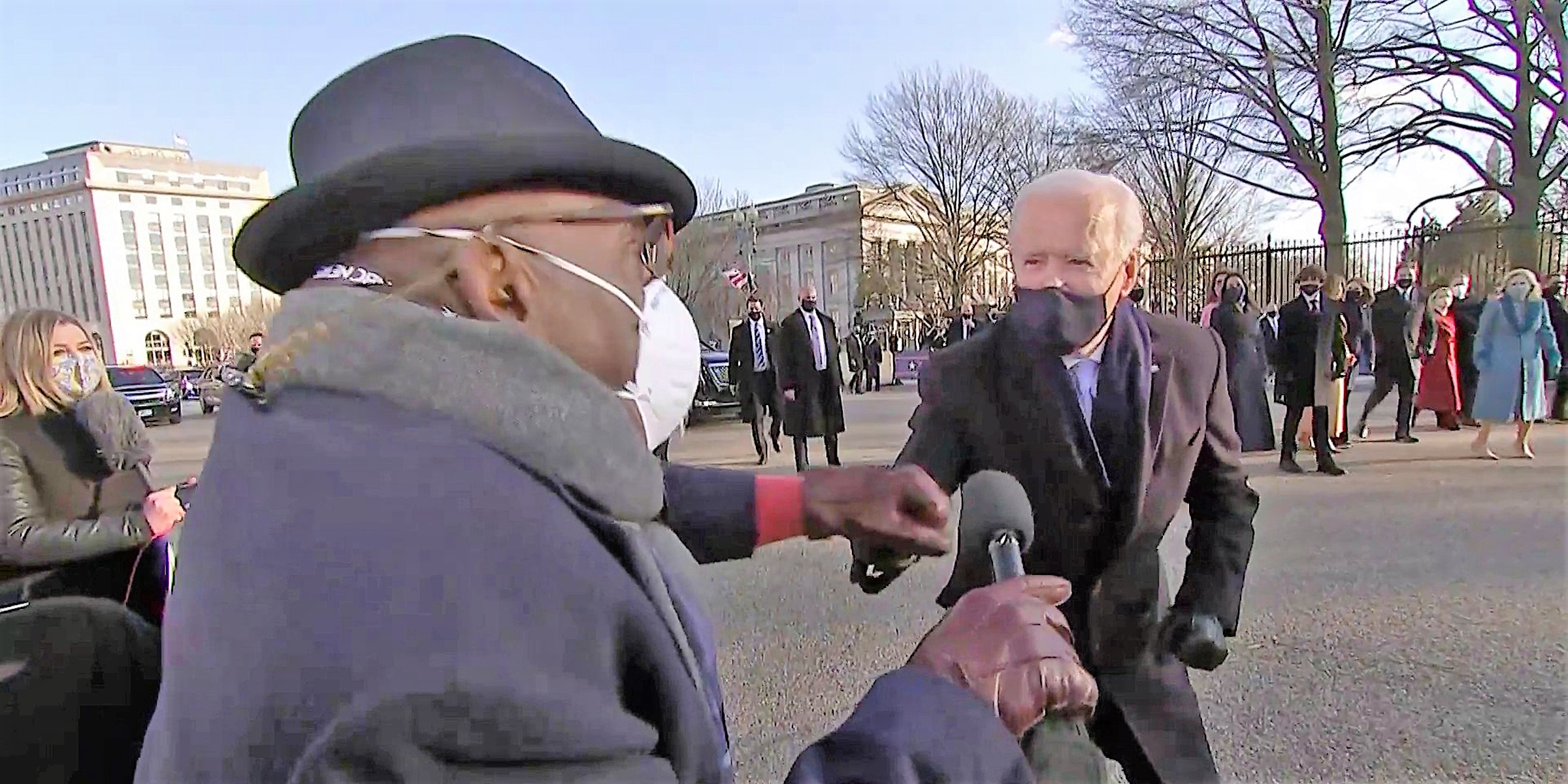To receive a free full-text email of The Zeitgeist whenever we publish to the website, please sign up here. Your email will not be shared with anyone. Ever.

We are in a cold war with China.
That is, as we say, not a prediction. It is an observation.
Feel free to disagree with it. But you also ought not to read anything too portentous into the term. Cold wars aren’t declared, after all. Observing their existence is the limit of what we can do.
In any case, what I mean by the term isn’t complicated. Two political belligerents are now engaged in a foreign policy whose objective is to thwart through all means short of firing weapons the expansion of influence, the establishment of additional international military infrastructure and the expression of territorial control over contested lands, sea lanes or airspace by the other.
I suspect that you might have read the below piece (or one like it) reporting on the statement and sanctions from the EU and US concerning China’s treatment of Uyghur Muslims in its western reaches. If you asked yourself, as we often counsel, “Why am I reading this now?”, it was not because western politicians only just discovered to their collective horror the depth of what is happening in Xinjiang.
U.S., allies announce sanctions on China over Uyghur ‘genocide’ [Politico]
About a week before you read that, perhaps you read coverage of the Quad Summit. It was a highly public meeting among its members – India, Australia, Japan and the United States – to begin the process of contesting the scope of the CCP’s sphere of influence within east and southeast Asia.
Quad Summit’s Vaccine Deal Is Biden’s Bold First Move in Asia [Foreign Policy]
A couple weeks before that, it might be that you read about the USS John McCain steaming through the Taiwan Strait for the first time during the Biden presidency (as an aside, I’m not sure which style guide encourages the use of the verb “rule” for what it is that American presidents do, but nuts to that).
U.S. Navy warship sails through Taiwan Strait for first time under Biden’s rule [NBC News]
Maybe you have read weeks of coverage of the Anchorage meetings, or Secretary of State Antony Blinken’s reference to Taiwan as a “country”, or explicit multi-lateral expressions of commitment to the defense of Taiwanese sovereignty.
In his first trip to Asia, Blinken warns China not to use ‘coercion and aggression’ to get its way [CNBC]
This is certainly not surprising to those who already knew that Taiwan is now Arrakis.
Yet while the emerging geopolitical struggle is not being called a cold war just yet, it is being called everything that a cold war is. It is only a matter of time before an influential politician, writer, journalist, executive or publication begins issuing Missionary statements framing and phrasing it as a new cold war. Then some U.S. State Department official will say very officially that it is not a new cold war, at which point everyone will know that everyone knows it is a cold war and throw away all pretense.
And that’s when the Narrative war will get hot.
The last time we went down this road, the Soviet Union had a lot of propaganda notes they could play domestically. There were, however, only a relative few they could play to any real effect abroad. What we today call whataboutism is in part referential to the art form it became under Soviet propagandists. In short, they discovered that they had a ready response to any criticism of their brutal and arbitrary system of justice, policing and treatment of political prisoners: “Sure, but what about racism in America?”
If that makes you nod your head a little bit, well, that is the point. The most effective propaganda doesn’t lie. It tells a truth and insists that all facts must be framed around that truth. If you aren’t willing to buy into that framing, well, then clearly you just aren’t honest enough to believe the truth they told you.
That is why the narrative war in this case will operate on another level. The CCP – and yes, our own government – doesn’t just have a few of these notes to play. They have the whole damn piano.
The China dispute is embedded in our most highly charged political narratives. This cold war will be fought in the hot war of narratives about ‘China flu’ and the ‘Wuhan coronavirus.’ It will be fought in the narrative of those terms as inherently racist. It will be fought in narratives about the ‘Biden’s family’s corruption by the CCP’ and ‘the crusade by the political right to create a corruption narrative.’ It will be fought in narratives about a news media that downplayed the betrayals of the world by the WHO and CCP in order to pin COVID-19 squarely on the Trump administration. It will be fought in narratives about a political movement that tried to distract from its own policy failures to pin COVID-19 squarely on Beijing. It will be fought in narratives of de-globalization, reshoring and ‘proximity sourcing.’ It will be fought in narratives of Chinese dominance over Bitcoin mining and whether that jeopardizes narratives of decentralization.
If you’re like me or most Americans, you will probably think somewhere between half and all of those narratives are nonsense. It doesn’t matter. In narrative world, any one of those narratives can be weaponized into targeted and divisive propaganda.
The China dispute is embedded in our most highly charged cultural narratives. This cold war will be fought in the hot war of narratives about how ‘the NBA showed in the Daryl Morey situation that all they care about is sales in China’, and about how ‘the backlash against LeBron James’s support of Beijing over Morey is another sign of American casual stay-in-your-lane racism.’ It will be fought in narratives about American board rooms, C-Suites and ESG offices that couldn’t care less about profiting from the CCP’s abuses of Uyghur Muslims as long as companies say Correct Things about the social and environmental causes that really matter. It will be fought in narratives about companies that don’t care about those causes so long as they say Correct Things about the patriotic implications of opposing CCP influence.
If you’re like me or most Americans, you will probably think those narratives are even more nonsensical than the political versions. It doesn’t matter. In narrative world, any one of those narratives can be weaponized into targeted and divisive propaganda.
The China dispute is embedded in our most highly charged social narratives. We are only days removed from the brutal murder of eight spa workers, most of whom were Asian-American women. We are in a period in which Asian-Americans of various national origins are experiencing an increase in targeted acts of violence and aggression. In just the past week, a Vietnamese-American friend of mine in Brooklyn was followed for several blocks in his own neighborhood by someone shouting racial slurs at him (incorrect racial slurs, too, which I suppose makes it racist in several ways at once). Do you think this very real thing that is happening isn’t going to be pulled into the hot war of narratives? Do you think that the prevailing counternarrative – that the US media went out of its way to frame this emerging racism exclusively as part of Trumpian White Supremacy while ignoring its unnerving prevalence in several other communities – is not going to be pulled into the narrative war, too?
So yes, lots of adjacent narratives out there, ready to be directed toward whatever purpose. What’s the point?
The point is that most of us are under the impression that a protracted conflict with China – even a cold war-style geopolitical struggle – will increase national unity. This is the old saw about politicians looking for an external enemy to unite around, and it is usually true, even if we usually mean it cynically.
Not this time.
Our conflict with China is deeply embedded in every fault line of our existing internal divisions. I fear that a cold war with China will lead to a hot war in narrative world that makes the Widening Gyre of our politics veer further away from a center that can hold. I think that’s true in financial, economic, political, social and cultural markets alike.
We can’t do much to stop it. We CAN prepare how we will identify and respond to it in our consumption of news and social media, and more importantly, in our relationships and interactions with others.
Clear Eyes. Full Hearts.




Thanks Rusty. Just this morning I was wondering why naming virus variants by geographic origin such as U.K. or South Africa is permissible everywhere in pandemic media yet “China/Wuhan” is verboten. (Y’all don’t live far down the road from Lyme.)
A question for you: With China relations cooling, will Russia relations warm? The Biden “killer comment” probably didn’t help. But over time, it seems you’d expect we see a shift from Putin being tagged as the source of all U.S. problems to Xi.
It’s a good question, and it is difficult to predict in no small part because it is so heavily dependent on the person of Putin. I’m a seller of the memes of “Trump as a Russian asset”, but I do think a second Trump presidency created a clearer path to Russia establishing itself as a European political force as the US reduced its points of connection with NATO members there. With that off the table, I suppose a warming narrative is possible, but for now it feels more like a wildcard. Still too much domestic political hay with limited international implications to be made from Russia as Bad Guy, I think.
I noticed that even a Cold War with China wouldn’t unite the US when I saw the bare-knuckles domestic naming-narrative battle over calling it Covid or the China flu.
It’s only been in the last few months that I’ve actually had this demoralizing thought: I’m glad I’m 56 and not younger as I think things politically, socially, culturally and economically in the US are going to get worse and much-more destructive, so I’m glad a lived through a better time.
That’s not my default setting, which used to be, “eventually, things will get better,” but I no longer feel that way. If even a foreign enemy can’t quasi-unite the US, then I don’t see things getting better until they get much worse first.
Nice connect of a lot of threads Rusty (I only picked up on the naming-the-pandemic one on my own), I just wish they didn’t augur such bad times ahead for the US.
Thanks, Mark, and I think I remember you making that connection quite some time ago!
For what it’s worth, I am finding that the more I avoid social and traditional media and the more I focus on communities and networks with whom I desire relationship and connection, the less that destructiveness affects me. I remain encouraged there’s a foundation at the end of all this.
God I hope you are right.
As always some excellent analysis on the existing narratives in US media. I must say though that I disagree with your pessimistic forecast. Yes, the narratives rest on the US’s domestic political fault lines, however that doesn’t mean that they have to be divisive. I’d raise three traits that could tip the scales.
First, if China starts trying to aggravate these narratives (more directly, so far I’ve only seen them issue a few critical press briefings). I think the impact of an outside force vocally criticizing America is likely to be received very differently from internal criticism. Something of a “who are they to bad mouth us? Only we get to bad mouth us!”
A bigger trait about this cold war is that while America is the largest opponent of China, it is by no means the only one. China’s political bullying and economic expansion have unsettled politicians and citizens in across the world, so I think the unity from a ‘common enemy’ could still happen to an extent on the international stage, regardless of its effects domestically in America (or in any of those other countries: India, Australia, Britain, Japan, etc.)
Lastly, I still disagree that America is doomed to descend deeper as a society. Even if that’s the direction we’re going, I do not believe it’s too late to turn this truck around. I can’t say that’s much more than a conviction at this point - I’m not sure how to prove it other than to do it.
Anyway, thank you as always for the insights Rusty!
I’m with you, Mark. My definition of a crisis is a situation that commands overwhelming consensus around the need for a response. I don’t think we have too many true crises in America. Most situations seem to elicit calls from one side or the other framing something as a “crisis.” Yet we need a crisis to make hard decisions and take difficult actions - and as far our political environment goes, we’re far from that. Sadly, I agree…we have much further to fall before we can reach the depths needed to elicit a crisis, which - perhaps by definition - we need in order to get to Rusty’s foundation from which we build.
As I recall the not so cold war on Arrakis ultimately resulted in a pretty significant supply chain disruption around the Galaxy. I hope that’s not what you’re predicting for Taiwan and the semi-conductor industry.
Well the Spanish Flu really was the “USA / Kansas City Flu” as it originated there in 1918 at an army base… Spain was the first country to report it through their press (Due to WW1 other countries censored the news)… personally i think calling it the Wuhan Flu seems appropriate but these are different times and probably for the best if these “events” get a scientific name like HIV did…
I am close to your age… this feels worse than the cold war… at least we were all united in the West against the Soviets… now no one seems to care the CCP, Russians, North Koreans hack us left and right… our wars seems to never end and also no one seems to care as only “poor” kids join the army these days… I wish for better days but expect it will get worse.